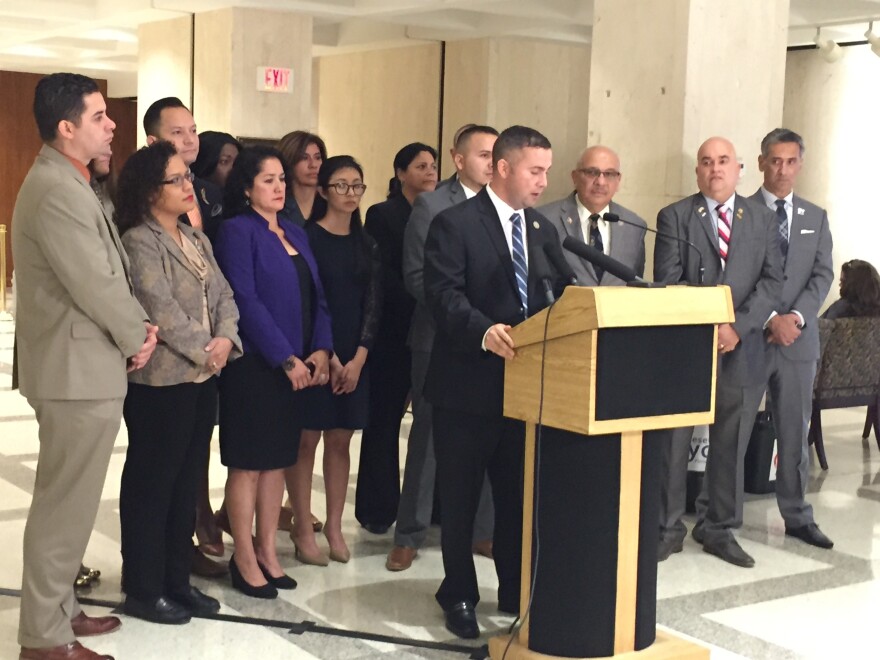Amidst the aftermath of Hurricane Maria’s devastating effects on Puerto Rico, Florida lawmakers believe the State has been inactive when tackling the issue of displaced Puerto Ricans. This has opened the floodgates for an issue Florida has been dealing with for years.
The aftermath of Hurricane Irma and Maria has created an immigration crisis in Florida.
Congressman Darren Soto is urging Florida to take a page from Washington D.C.
“With these major challenges we saw a historic budget, where Democrats and Republicans came together in Washington to pass real solutions. Even though we couldn’t get the dreamers on, we must continue to fight for them. Tallahassee needs to take a page from that book and work together on issues that unite us rather than divide us,” Soto says.
Soto is pushing for greater support for Puerto Ricans, who have moved to Florida following the storms. The destruction caused by Hurricane Maria on the island has forced tens of thousands of Puerto Rican citizens to resettle in Florida.
Soto says this influx of refugees has exposed a housing issue that Florida has been struggling with for years.
“There will be a huge mistake, a huge missed opportunity, should we fail to have an investment of $309 million in the Sadowski Fund for affordable housing. This is, yes, about an influx of tens of thousands of folks from the Virgin Islands and Puerto Rico. But that’s made it to a tipping point in areas that already had a huge need for affordable housing," Soto says.
The $300 million Soto mentions is a budget plan for the Sadowski Trust Fund proposed by the Senate. Over the last decade, the Trust Fund has had over a billion dollars swept from it in order to plug the state’s budgetary holes.
The House’s latest budget plan would continue that trend, as it diverts $182 million from the Trust Fund. House Speaker Richard Corcoran explains the reasoning behind the sweep.
“Well, again, it’s just a prioritization. We gotta fund our law enforcement, we have to fund our K-12 system. The Senate’s putting a great emphasis on funding the higher educational system,” Corcoran says.
The sweeping of funds has spiked the cost of living in Florida. The University of Florida’s Shimberg Center reported that 744,662 low-income renters spent more than 40 percent of their earnings on housing in 2015, 35 percent more than a decade ago.
This has led many lawmakers, like Representative Carlos Guillermo-Smith (D-Orlando), to label the affordable housing situation a crisis. A crisis that has been exacerbated with the recent introduction of displaced Puerto Ricans.
“The crisis has been exacerbated by evacuees from Puerto Rico, from the Virgin Islands. Who, as of right now, might not have anywhere to go next week. Because next week the TSA program expires. A FEMA program that lets them use vouchers to stay in temporary hotels,” Smith says.
He says the sweeping trend will take years to recover from.
“It’s gonna take years because year after year after year we do the same thing here in the legislature. We sweep the affordable housing trust fund. We put ourselves deeper and deeper into this whole. And so what is the solution this year, after all of this has come to its worst fruition imaginable, with Puerto Ricans sleeping in cars in Orlando because they have nowhere else to go? We’re raiding the affordable housing trust fund again,” Smith says.
Correction: This story originally referred to displaced Puerto Ricans as refugees.




